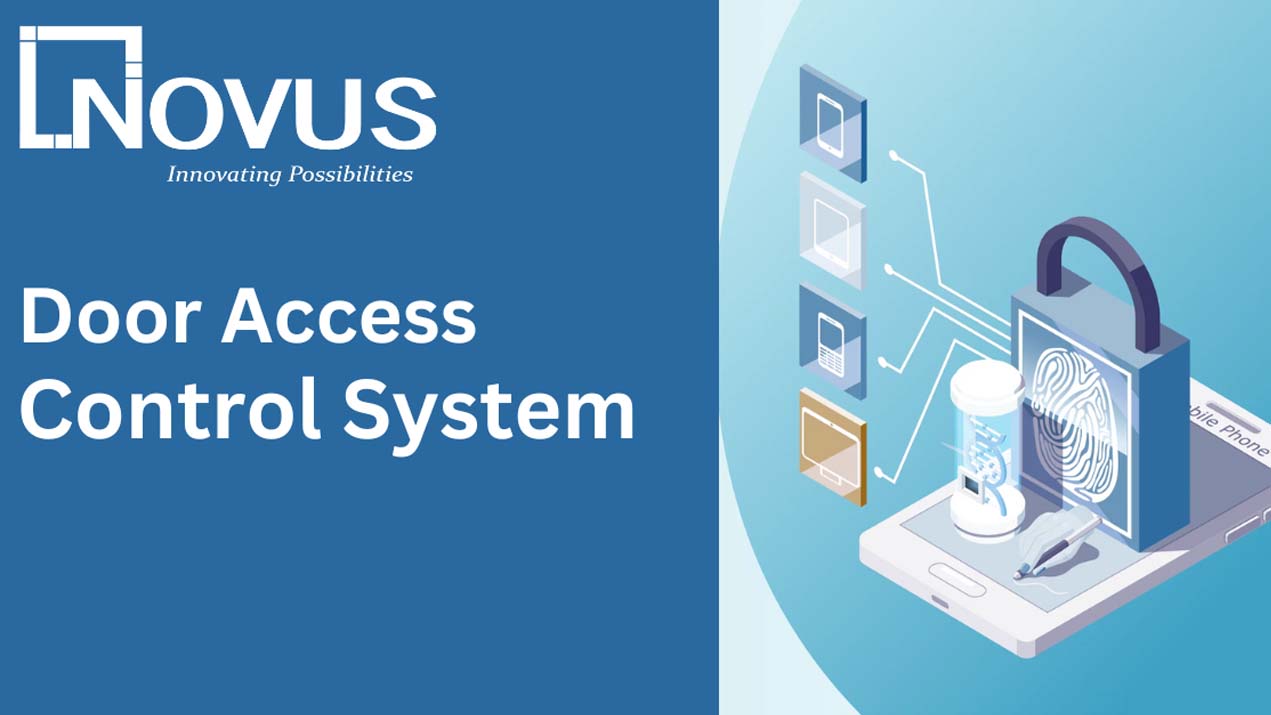
1) How Relevant is A Modern Door Access Control System in Ensuring Security?
4) Flexibility in Door Access Control System
5) Efficiency and Productivity Boost through Door Access Control System
In today's fast-paced world, security is a top concern for all. The need to protect our homes, offices, and public spaces from unauthorized entry, theft, and vandalism has never been more critical. The door access control system has emerged as an essential component of modern building automation and security infrastructure.
In this blog, we will explore the importance of door access control systems, exploring how they go far beyond the basic function of opening and closing doors.
At its core, a door access control system serves as a robust security solution. It acts as the first line of defense for any building, effectively preventing unwanted access. Whether you are safeguarding your home, office, or an entire enterprise, door access control systems ensure that only authorized individuals can enter. This not only deters intruders but also provides peace of mind knowing that visitors are registered before gaining access.
Door access control systems bring convenience to the forefront of building automation. Gone are the days of manually locking and unlocking doors. Today, these systems offer swift and accurate access management. Tenants can customize access permissions for their doors, adjusting them as needed. Visitors and employees benefit from hassle-free access through various technologies like access cards, biometrics, and mobile applications. This convenience is particularly evident in high-traffic settings, where rapid access is crucial.
Unlike manual door access control system , which relies on time-consuming data verification, digital systems centralize control. Administrators can easily manage access to different doors, creating distinct access zones. This flexibility is invaluable in enterprises, allowing employees access to specific areas while restricting entry elsewhere. Similarly, in residences, it enables homeowners to control which room’s guests or family members can access. Additionally, door access control systems can be tailored to trigger specific security alarms for various threats.
Door access control systems are not only about security; they also enhance efficiency and productivity. By safeguarding important documents and reducing the risk of tampering, these systems create a secure work environment. Moreover, they facilitate time and attendance tracking, which helps monitor employee productivity. With a well-designed door access control system, employees are more likely to arrive on time, boosting overall efficiency, productivity, and profitability.
Door access control systems offer more versatility than traditional security solutions. They can be integrated into nearly any type of security system and are compatible with various types of doors. Biometrics and PINs, two widely used security methods, enhance the system's robustness. Additionally, these systems can incorporate multiple access methods, such as swipe card access, making them adaptable to diverse security requirements.
In conclusion, door access control systems have evolved from being a buzzword to an indispensable asset for various enterprises. They offer a myriad of advantages, including enhanced security, convenience, flexibility, improved efficiency, and a rapid return on investment. If you have not yet incorporated a door access control system into your security infrastructure, now is the time to consider it. These systems provide the peace of mind and operational efficiency needed in today's fast-paced world. By doing so, you can stay in control, ensuring that only authorized individuals are where they need to be, thus safeguarding what matters most.
A door access control system electronically verifies identity before unlocking a door, ensuring only authorized individuals can enter. It reduces risks associated with duplication of keys, unauthorized access and security breaches.
It uses credentials like RFID cards, biometrics, mobile access or PINs that are authenticated by a controller. If valid, the system unlocks the door and logs the entry event for monitoring.
Core components include access readers, control panels, door locks, user credentials and management software. These work together to provide secure and centralized access control.
There are three main types: standalone systems for single doors, networked systems for multi-door buildings and cloud-based systems for remote management and scalability.
They are widely used in offices, schools, data centers, hospitals, residential buildings, industrial zones and other facilities needing secure entry.
They automate entry, eliminate physical key handling, support mobile and biometric access and simplify permission changes for staff and visitors.
Yes. It can integrate with CCTV, alarm systems, attendance software and visitor management tools for complete security automation and monitoring.
Yes. Entry logs can sync with HR and time-tracking systems to measure productivity, reduce time theft and streamline payroll accuracy.
Most systems include battery backup or fail-safe locking modes to ensure access or safe evacuation during power loss, depending on security requirements.
They reduce reliance on physical guards, minimize lock/key replacements and prevent unauthorized security incidents, resulting in long-term operational savings.
Yes. Permissions can be set based on roles, time schedules or restricted zones, improving safety and operational control.
Building layout, number of users, required authentication methods, integration needs and budget should be evaluated for system selection.
Accelerate Your Business with Novus Automation
Become a Partner